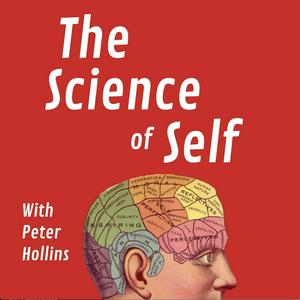00:01:09 Aristippus and Ethical Hedonism.
00:07:45 How is Ethical Hedonism Different from Hedonism?
00:10:37 Reframe the Way You Think about Pleasure
00:17:45 Reframe the Way You Think about Pain
00:22:52 Here are the main takeaways from today's episode.
Philosophies on Self-Discipline: Lessons from History’s Greatest Thinkers on How to Start, Endure, Finish, & Achieve (Live a Disciplined Life Book 7) By Peter Hollins
Hear it Here - https://bit.ly/philosophieshollins
https://www.amazon.com/dp/B08H1BSFCV
8 meditations on goal achievement and getting things done no matter the circumstances.
Instead of trying to go it alone or wing it, apply lessons from some of history’s greatest thinkers. Harness thousands of years worth of wisdom, not just your own.
Our thoughts determine our actions. Learn from the best and create a self-disciplined mindset.
Philosophies on Self-Discipline brings you the condensed knowledge of philosophers, polymaths, scientists, and psychologists. You will gain a working knowledge of many classic texts and theories, and learn how to apply them to your own modern life. There is no better way to become a well-rounded person who is also productive on command, and never prone to procrastinating.
Thousands of years of knowledge in one book.
Peter Hollins has studied psychology and peak human performance for over a dozen years and is a bestselling author. He has worked with a multitude of individuals to unlock their potential and path towards success. His writing draws on his academic, coaching, and research experience.
A quintessential guide for procrastinators and couch potatoes.
•Plato, Akrasia, and the power of small wins.•Nietzsche and the energy that our willpower runs on.•How to re-imagine hedonism for your own purposes.•Freud, subconscious desires, and getting things done.•The science of behaviorism and what we can learn from rats.•Kaizen, rituals, and focusing on the present.
Use tips and techniques that combine psychology with philosophy.
No more ifs, buts, or ands. Just simple action and execution.
Get started, fight your resistance, and finish your task -- starting with clicking the BUY NOW button.
This is the seventh book in the “Live a Disciplined Life” series, as listed below:1.The Science of Self-Discipline: The Willpower, Mental Toughness, and Self-Control to Resist Temptation and Achieve Your Goals2.Finish What You Start: The Art of Following Through, Taking Action, Executing, & Self-Discipline3.Neuro-Discipline: Everyday Neuroscience for Self-Discipline, Focus, and Defeating Your Brain’s Impulsive and Distracted Nature4.Mind Over Matter: The Self-Discipline to Execute Without Excuses, Control Your Impulses, and Keep Going When You Want to Give Up5. Practical Self-Discipline6.Legendary Self-Discipline: Lessons from Mythology and Modern Heroes on Choosing the Right Path Over the Easy Path7. Philosophies on Self-Discipline: Lessons from History’s Greatest Thinkers on How to Start, Endure, Finish, & Achieve.


